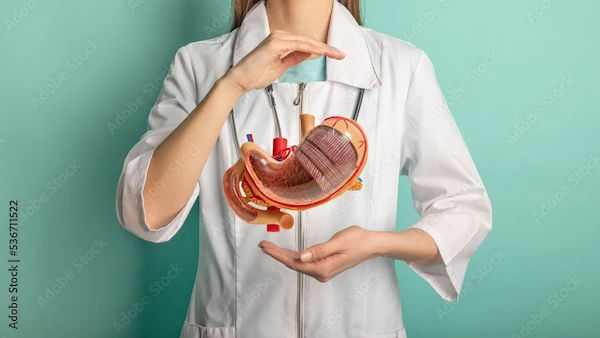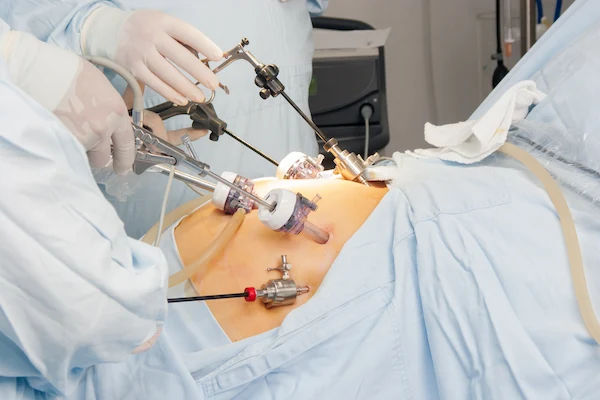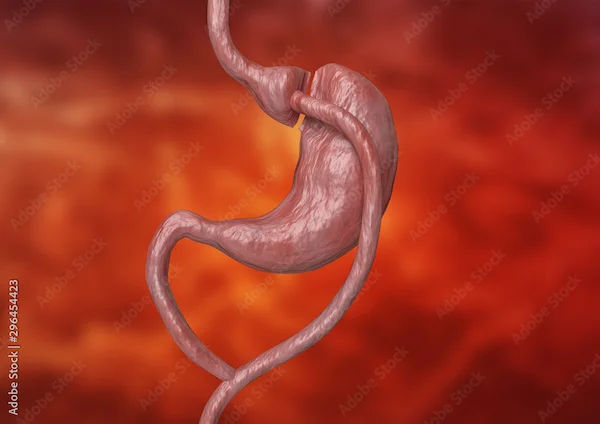What To Eat 6 Weeks After Gastric Bypass Surgery?
Discover what to eat 6 weeks after gastric bypass surgery, including ideal protein sources, safe solid foods, and tips for long-term recovery success.

Written by Dr.Sonia Bhatt
Last updated on 3rd Jul, 2025

Introduction
Gastric bypass surgery is a life-changing procedure that helps with significant weight loss by altering your digestive system. After surgery, your stomach is much smaller, and your body absorbs fewer nutrients, so eating the right foods is crucial for healing and long-term success.
By the 6-week mark, your stomach has healed enough to handle more solid foods, but you still need to be careful about what you eat. This guide will help you make the best food choices to stay healthy, avoid complications, and maintain steady weight loss.
Diet Progression After Gastric Bypass Surgery
Before we discuss what to eat at 6 weeks post-surgery, let’s quickly recap the diet stages:
1. First Week (Clear Liquids) – Broth, sugar-free gelatin, water.
2. Weeks 2-3 (Full Liquids & Pureed Foods) – Protein shakes, yoghurt, blended soups.
3. Weeks 4-5 (Soft Foods) – Scrambled eggs, mashed vegetables, soft fish.
4. Week 6 & Beyond (Solid Foods) – Gradually introduce firmer foods while prioritising protein.
At 6 weeks, you can start eating soft, well-cooked solid foods, but you must still chew thoroughly and avoid overeating.
Consult Top Specialists for Personalised Health Advice
Foods to Eat 6 Weeks After Gastric Bypass
At six weeks post-surgery, your digestive system is ready for soft, nutrient-rich solid foods. Choosing the right foods at this stage is essential for healing, maintaining energy, and supporting healthy, sustained weight loss.
1. High-Protein Foods (Most Important!)
Protein helps with healing, muscle maintenance, and keeping you full. Aim for 60-80 grams of protein daily. Good sources include:
Lean meats (chicken, turkey, fish) – Cooked soft and cut into small pieces.
Eggs – Soft-boiled, scrambled, or poached.
Low-fat dairy – Greek yoghurt, cottage cheese, and skim milk.
Plant-based proteins – Tofu, lentils, and beans (if tolerated).
2. Soft Cooked Vegetables
Vegetables provide fibre and nutrients but should be well-cooked and easy to digest:
Steamed carrots
Mashed sweet potatoes
Zucchini or squash
Spinach (cooked)
Avoid raw or fibrous veggies, like celery or broccoli, as they can be hard to digest.
3. Soft Fruits
Fruits should be peeled, seedless, and soft:
Bananas
Avocados
Applesauce (unsweetened)
Ripe melon
Avoid tough skins, seeds, or dried fruits that may cause blockages.
4. Whole Grains (In Moderation)
Choose soft, easily digestible grains:
Oatmeal
Quinoa
Soft whole wheat bread (small pieces)
Avoid white bread, pasta, or rice in large amounts—they can expand in your stomach and cause discomfort.
5. Healthy Fats (Small Amounts)
Fats are necessary but should be consumed in small portions:
Olive oil
Avocado
Nuts (finely ground, if tolerated)
Avoid fried or greasy foods—they can cause nausea and dumping syndrome.
Foods to Avoid at 6 Weeks Post-Surgery
Some foods can cause digestive issues, blockages, or discomfort:
Sugary foods & drinks – Can cause dumping syndrome (nausea, diarrhoea).
Carbonated drinks – Can stretch your stomach pouch.
Tough meats (steak, pork chops) – Hard to digest.
Raw vegetables & salads – Can cause blockages.
Spicy or acidic foods – May irritate your stomach.
Alcohol – Empty calories and can irritate your stomach.
Tips for Eating After Gastric Bypass Surgery
Adopting mindful eating habits after gastric bypass surgery is just as important as choosing the right foods. These tips may help you avoid discomfort, support healing, and make the most of your weight loss journey.
1. Eat Small, Frequent Meals – Aim for 5-6 small meals (½ to 1 cup per meal).
2. Chew Thoroughly – Take 20-30 chews per bite to prevent blockages.
3. Stop Eating When Full – Overeating can cause pain or vomiting.
4. Drink Fluids Between Meals – Avoid drinking 30 minutes before/after meals to prevent stretching your stomach.
5. Take Supplements – You’ll need vitamins (B12, iron, calcium, etc.) due to reduced absorption.
When to Seek Help
Consult your doctor immediately, if you experience:
Persistent vomiting
Severe pain after eating
Inability to keep food down
Signs of dehydration (dizziness, dark urine)
Final Thoughts
At 6 weeks post-surgery, your diet should focus on high-protein, soft, and nutrient-rich foods while avoiding sugary, fatty, or hard-to-digest items. Listen to your body, eat slowly, and follow your doctor’s guidelines for the best recovery.
If you need personalised advice, Apollo 24|7 offers expert consultations to help you plan meals and stay on track.
Consult Top Bariatrcians
Consult Top Specialists for Personalised Health Advice

Dr. Anand Ravi
General Physician
2 Years • MBBS
Bengaluru
PRESTIGE SHANTHINIKETAN - SOCIETY CLINIC, Bengaluru

Dr. Amrutha G
General Physician/ Internal Medicine Specialist
10 Years • MBBS,DNB(family medicine), Diabetologist-CCEBDM,CCGDM
Bengaluru
Apollo Clinic, Sarjapur Road, Bengaluru

Dr. Richa Mishra
General and Laparoscopic Surgeon
8 Years • MBBS, DNB General surgery
Bengaluru
Apollo Clinic, JP nagar, Bengaluru

Dr. Aloy Jyoti Mukherjee
General Surgeon
20 Years • MBBS, MS, MNAMS, FALS, FMAS, FIAGES, Robotic
Delhi
Apollo Hospitals Indraprastha, Delhi

Dr. Sunil Kaul
General Surgeon
30 Years • MBBS, MS, FICS, FIMSA, FMAS
Delhi
Apollo Hospitals Indraprastha, Delhi
(25+ Patients)
Consult Top Bariatrcians

Dr. Anand Ravi
General Physician
2 Years • MBBS
Bengaluru
PRESTIGE SHANTHINIKETAN - SOCIETY CLINIC, Bengaluru

Dr. Amrutha G
General Physician/ Internal Medicine Specialist
10 Years • MBBS,DNB(family medicine), Diabetologist-CCEBDM,CCGDM
Bengaluru
Apollo Clinic, Sarjapur Road, Bengaluru

Dr. Richa Mishra
General and Laparoscopic Surgeon
8 Years • MBBS, DNB General surgery
Bengaluru
Apollo Clinic, JP nagar, Bengaluru

Dr. Aloy Jyoti Mukherjee
General Surgeon
20 Years • MBBS, MS, MNAMS, FALS, FMAS, FIAGES, Robotic
Delhi
Apollo Hospitals Indraprastha, Delhi

Dr. Sunil Kaul
General Surgeon
30 Years • MBBS, MS, FICS, FIMSA, FMAS
Delhi
Apollo Hospitals Indraprastha, Delhi
(25+ Patients)



